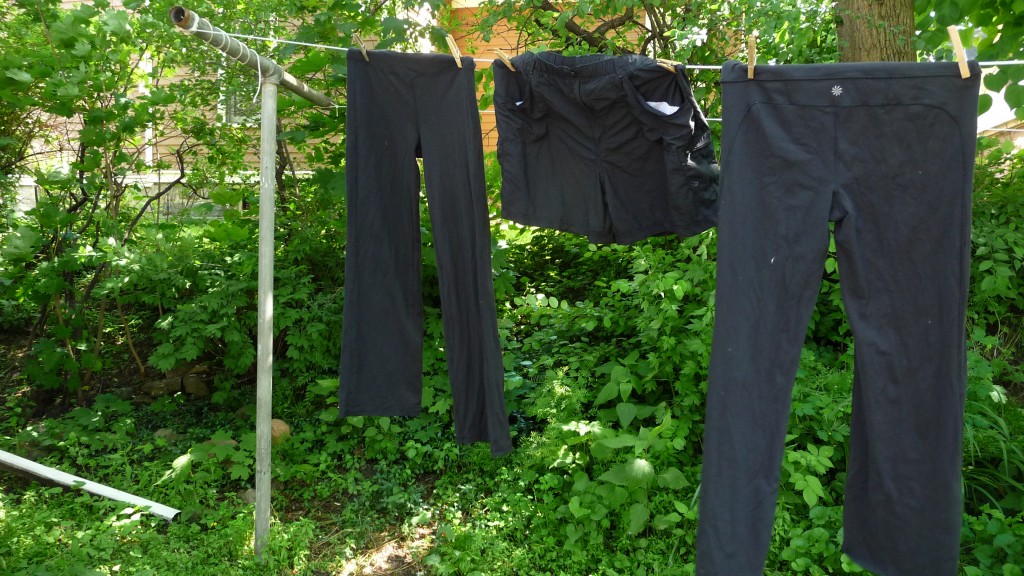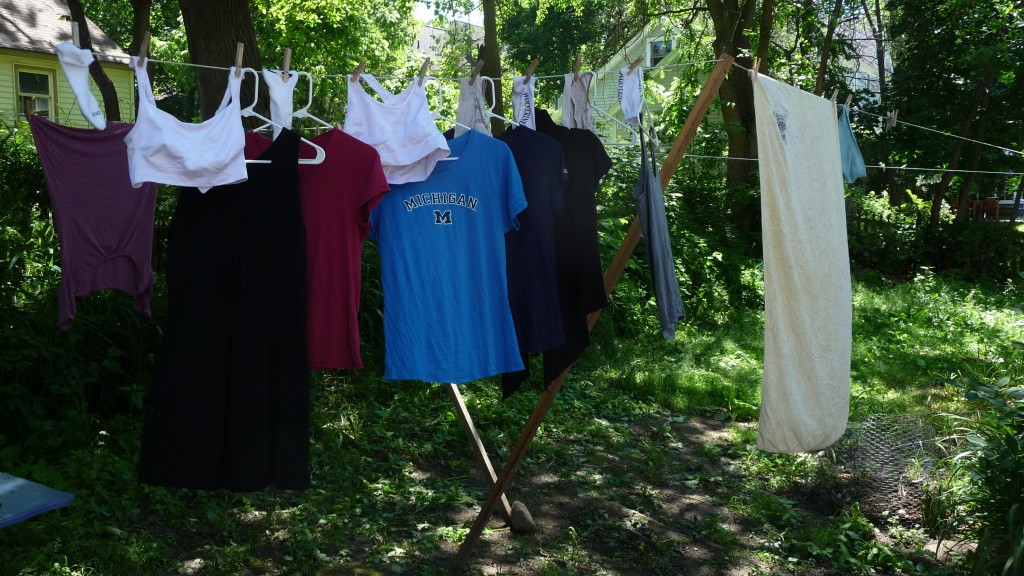Early 1980’s. I recall the thrill of our first microwave, our first VCR, our first manual cable box, my first attempt at personal computers. All of this was considered progress and ingeniousness.
Concurrently, my grandmother passed all of this by. She continued to can her own jam, make her own wine, keep a garden, save scrap materials for quilts for the grandchildren, wash and save used tin foil, and hang every bit of laundry on the line. (My grandfather had proudly built my grandmother a clothesline using pipes -spray-painted silver- in the 50’s. She considers it a symbol of his love for her, I would later learn.)
However, in this particular era of progress, I could sense that my parents were a bit embarrassed by my grandmother’s traditionalism and reticence to use anything that she couldn’t fix with grandpa.
I noticed a similar sense when our family discussed how our neighbor lady also hung up every stitch of laundry on the clothesline…right up to the first snow and after the first thaw. We laughed as her husband’s underwear flew in the breeze, those bright Fruit of the Looms, next to her generous Playtex brassieres.
Christmas 2007. I shared breakfast with my grandmother and told her about our sustainability courses at SNRE, particularly with Thomas Princen. I told her that it all reminded me of her lifestyle. She balked, but was slightly happy about the comment.
As we did the dishes together by hand and looked out on her snowy garden, we started talking about lifestyle changes since her childhood. She turned a bit serious and said quietly, “Young people today have too much pride. They just have to have so much stuff and work so many hours to get more. Then, they don’t have time for their families or neighbors. Why do they need so much stuff?”
Pride & Stuff. I glanced out the window at my grandmother’s beautiful clothesline poles glistening with frost. That got me thinking about my lifelong embarrassment to hang my all of my clothes on the line. I could start there. Just a simple act of humility to reduce the amount of carbon in the atmosphere.

I would like to thank whoever constructed these poles.
Summer 2010. I have been hanging my laundry for the past three years in the sunshine.
Every place I live, my eyes seek out the ancient infrastructure of a clothesline. Sometimes there is an old hook or a rusty nail at just the right height. Sometimes, like this summer, there is an old pipe stuck in the ground, not unlike my grandfather’s structure, around which to tie lines.
To my surprise, I connect with neighbors and nature as I hang up wet clothes. My grandmother and neighbor lady must have also found that a clothesline is more than an economical choice. This summer my current neighbor, said to me, “You know Kate, it must be 50 years since that post was used. Good ole thing. It’s so nice to see fresh laundry again. We’re so glad you moved in.”

Every Stitch of Clothing


